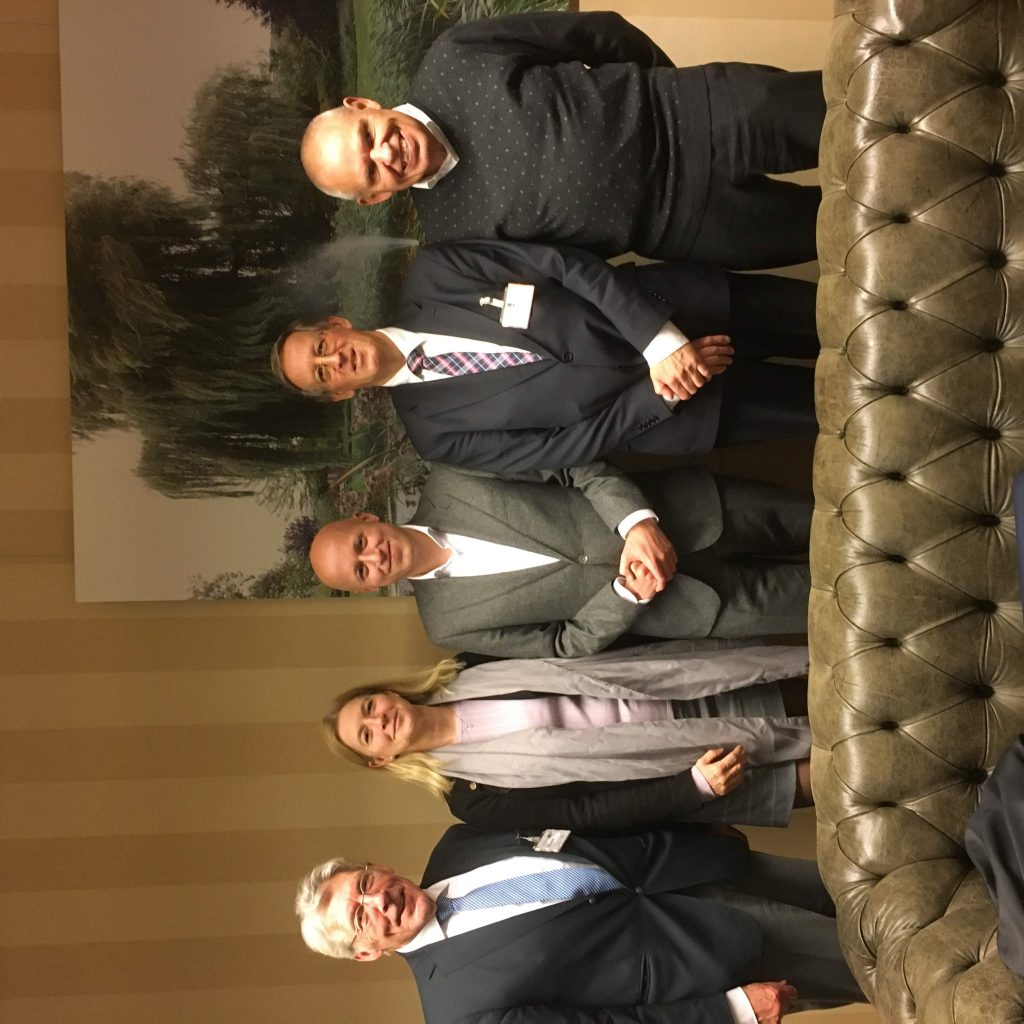On Monday 19 November 2018 four representatives of the patient organisations in the Netherlands were invited to consult with the Dutch parliament member Rens Raemakers.
The following persons were invited:
- Prof. Rob Heethaar of Angelman syndrome The Netherlands.
- Carin Koning of the Diabetes Association.
- Fred Lindhout of the NFK.
- Lex van der Heijden of CMTC-OVM.
Raemakers is a member of one of the coalition parties (D66) who form the Dutch government. He has as portfolios: curative care, childcare, youth care, participatory law, poverty and debt policy. Raemaekers has had cancer himself and is therefore an extra experience expert.
“It is very important that there are patient organisations and that they perform a powerful function.”
These are the opening words of Minister Bruins for Medical Care during a debate on patient rights and client rights in the spring of 2018. With this, he expresses his appreciation for patient organisations in a concise way. He shows that they actually have added value.
They, are we. Together we represent 20 patient organisations. We are experience experts in healthcare. In this position paper we make three proposals based on our experiences from daily practice. We ask policymakers and decision-makers to appreciate this input and involve it in the development of health care policies.
Proposal 1 – appreciation for patient participation
The pursuit of unlimited participation is widely embraced, and rightly so. On the basis of the UN Convention on Disability (2016), this is given a worldwide concrete interpretation. The Dutch program underlines the importance of ‘listening to people with disabilities ‘. Under the guise of ‘do not talk about, but talk with’, patients regularly sit at the table. The starting point is that care is better aligned with existing practice when their ideas and experiences are involved in new developments, regulations and policies. It is very positive that the patient’s insights are taken just as seriously as the insights of the professional. However, this is not always reflected in the remuneration.
Our proposal is that patients and/or their representatives who share experiences and data for better care will receive substantial financial compensation from now on. A special patient participative fund can be set up for this purpose.
Proposal 2 – space for secure information exchange
The information society has made patients wiser and more empowered. Despite the better availability of information, it can also be quite difficult to fight your way through all of the information. Patients have to look up a lot themselves or find out about the information and participation opportunities. To improve this, two years ago seven associations/foundations for rare diseases began to set up a digital information platform to promote the exchange of information between parents [of patients?]. The first reactions are positive. Better facilitation through unambiguous information counters can help. Conversely, there is also a need to share information with professionals. This is not always easy due to a large amount of different systems.
Our proposal is to make it easier to share information and data with multiple doctors and providers, with adequate security and privacy guarantees. Own direction on care data & information is the starting point.
Proposal 3 – recognition of rare diseases
The word says it all: patients with rare diseases are rare. But if all Dutch people with a rare disease are added together, it adds up to a whopping number of 1.8 million. However, systems in healthcare are not adequately equipped for them. This often leads to the well-known from-the-box-to-the-wall phenomenon or to the failure to know the existence of diseases that are not directly measurable, such as certain brain diseases. Because the numbers are too small, little is invested in research.
Our proposal is to set up more expertise centres for rare diseases. Because a rare disease often does not fit within a single diagnostic treatment combination (DBC) code, we also ask for the reimbursement system to take this complexity into account.
Participating organisations: Breast Cancer Association Netherlands, KWF, Dutch Cystic Fibrosis Foundation, Parkinson’s Association, Hersenletsel.nl, Brain Injury Explanation, Diabetes Association Nederland OPCI, Macula Association, CMTC-OVM, St. Restless Legs, Stichting Noonan Syndrome, Association for Ichthyosis Networks, NL Net, Naevus International, skin patients Netherlands, Association Angelman syndrome The Netherlands, St. Hematon, Association for Ichthyosis Networks and ITP Patient Association.
This position paper was created at a meeting that the Novartis Patient Academy organised on 31 October 2018 in Nieuwspoort, The Hague. The meeting was about the healthcare policy of the cabinet Rutte III, the Health, Welfare and Sport budget 2019 and the debate on the matter that took place in the second chamber. During the meeting, input was collected from the patient organisations present. Central questions were:
- What obstacles in the current patient policy do you want to bring to the attention of politics and
- Which solutions do you offer? The collected input is incorporated into this position paper, which is shared with the healthcare’s spokespersons in the Parliament.
During a previous session with dozens of representatives, which was organised by Novartis, a number of groups identified various bottlenecks, which were summarized and which served as the basis for our conversation with Raemakers.
